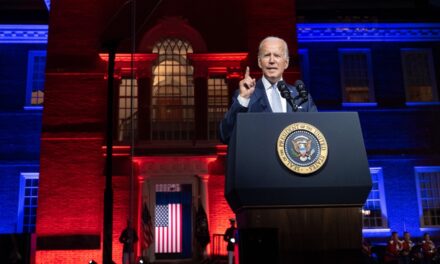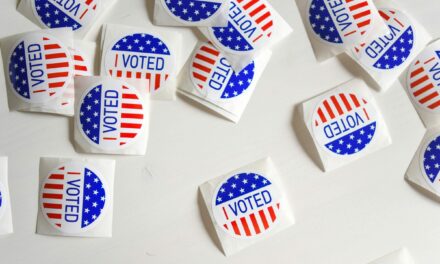We support our Publishers and Content Creators. You can view this story on their website by CLICKING HERE.
Black voters shocked MSNBC host Alex Wagner when they questioned Vice President Kamala Harris’ authenticity.
“The first time I ever heard the name Kamala Harris,” said a woman named Dr. Alfie Goodwin, “it was in association to locking up parents for truancy.”
“I really didn’t understand how this person claims to be a black woman, but yet she’s locking up black women and black men and separating families.”
Harris made her crackdowns on truancy as a local prosecutor in San Francisco a top pitch to voters while running for California attorney general. When she was inaugurated following her first statewide election, Harris made clear, “We are putting parents on notice. If you fail in your responsibility to your kids, we are going to work to make sure you face the full force and consequences of the law.”
Harris was attacked for her aggressive initiatives on truancy in 2019 when she mounted her first run for president.
“The dispute over the truancy policy, which was later expanded statewide with Harris’s support, illustrates a broader issue for her,” Vox reported just weeks after Harris announced her presidential primary campaign. “Policies that may have seemed acceptable or even laudable a decade ago face more questions today as criminal justice reform has taken off, especially among Democrats, particularly in the wake of Black Lives Matter.”
Harris would go on to struggle with courting black voters throughout her party’s 2020 presidential primary for reasons some voters would reiterate on MSNBC Tuesday night.
“When she was sworn into the Senate, it was as the first American Indian,” Goodwin said, met with a “Thank you!” from a nearby listener. “It’s fine! We don’t care,” Goodwin added, with MSNBC cutting to another voter named Valerie Martin who said, “We all know she’s not black!”
“Let’s understand that,” Martin said. “We are all clear of that.”
“But my point of view,” she added, is “she’s already been there. She’s in office right now.”
Black voters had resisted flocking to Harris in 2020, citing her heritage as Jamaican and Indian instead of African American. The Washington Post reported in 2019 on left-wing influencers who explained her lineage as the reason behind black resistance to backing a Harris candidacy.
“You don’t voluntarily immigrate into a community that is supposedly segregated, and then claim the struggles of people who have been here chained to chattel slavery for multiple generations,” one activist named Antonio Moore said on his radio show. “Kamala Harris does not have a black agenda.”
“Moore is a leader of a tiny but outspoken movement called American Descendants of Slavery, or ADOS, which has been rattling Democratic strategists and enraging some liberal black leaders by calling for a reimagining of black identity that replaces skin color with historical lineage as the defining characteristic,” the Post reported. “Descendants of American slaves, they say, should not be seen as part of broader groups like ‘people of color’ or ‘minorities,’ because their historical situation is completely different.”
Trump was hounded by the press after referencing similar sentiments in his remarks at a conference of the National Association of Black Journalists (NABJ) this summer.
“I didn’t know she was black until a number of years ago when she happened to turn black and now she wants to be known as black,” Trump said in Chicago. “Is she Indian or is she black?”
As The Federalist has reported, the Harris campaign has exploited the most racist impulses of identity politics to gin up faux outrage against Trump. In August, the Democrat’s campaign ridiculed a Trump stop in the Detroit suburb of Howell, Michigan, a city in a reliably red county surrounded by blue votes that Republicans obviously hope to flip.
Trump’s event on “crime and safety,” however, according to the Harris campaign, wasn’t just a “dog whistle” from the Republican, but a “bullhorn.”
Alyssa Bradley, the Harris campaign’s Michigan communications director, condemned Trump for “choosing to rally in a town that was historically known as ‘the KKK capital of Michigan.’” A reporter asked Trump about the charge of white supremacy, citing the presence of area extremists at the tail end of the event. The former president responded by asking the reporter a question of his own.
“Who was here in 2021?” Trump said.
“Joe Biden,” she answered.
“Thank you,” Trump responded before walking off.
Trump doubled his share of the black vote from 6 percent to 12 percent in the last election, and some polls suggest the Republican president could do so again this year.

 Conservative
Conservative  Search
Search Trending
Trending Current News
Current News 





